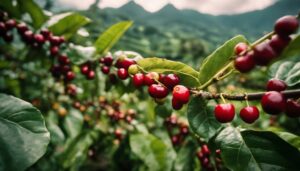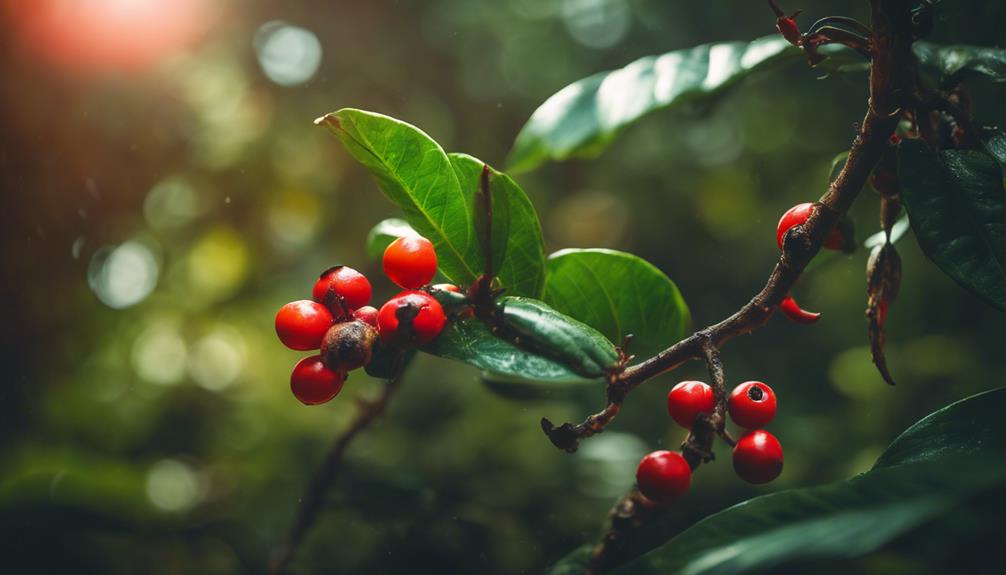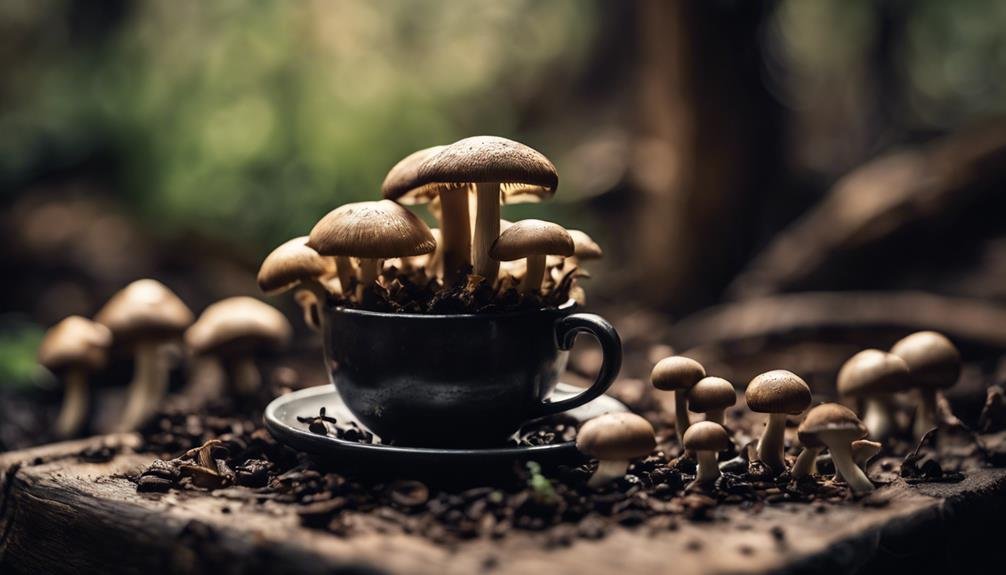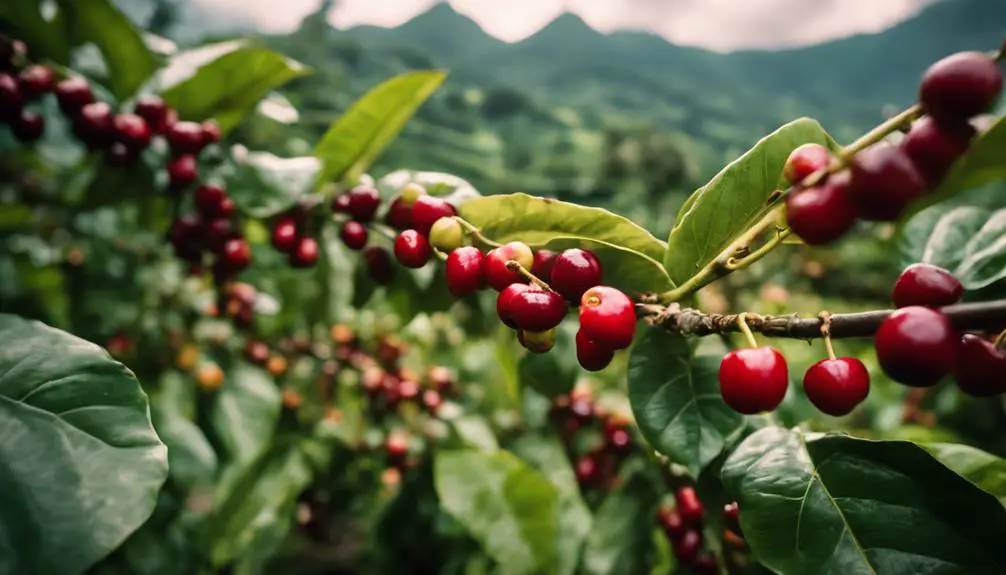Imagine yourself sitting in a vibrant Italian café, enjoying the energizing aroma of freshly brewed espresso as you soak in the lively atmosphere. The baristas behind the counter expertly craft cup after cup of this rich and intense beverage, each sip transporting you to the heart of this global coffee capital. Now, picture yourself in Ethiopia, surrounded by the warmth and hospitality of a traditional coffee ceremony. The air is filled with the sweet aroma of roasted coffee beans, and the rhythmic sounds of drums and laughter fill the air as family and friends gather to share in this ancient ritual.
This is just a glimpse into the world of global coffee culture, where the ways in which we enjoy and appreciate coffee vary significantly from one country to another. From the bustling cafés of Italy to the serene fika breaks in Scandinavia, coffee traditions reflect the unique customs and values of different cultures around the world. In this article, we take a deep dive into the fascinating world of coffee culture, exploring the global coffee traditions, rituals, flavors, and techniques that make each country’s coffee experience truly distinctive.
An Overview of Global Coffee Traditions
Coffee traditions are deeply ingrained in many cultures worldwide, becoming an integral part of daily life and social interactions. From the intense espresso culture in Italy to the elaborate coffee ceremonies in Ethiopia, global coffee customs showcase the diverse ways in which this beloved beverage is enjoyed and revered.
Italy, known for its strong coffee culture, has popularized the tradition of sipping small, concentrated shots of espresso at cozy cafes. In contrast, Ethiopia boasts a rich coffee heritage with ancient rituals where coffee ceremonies bring people together to celebrate and enjoy the brewing process.
By exploring these global coffee traditions, we can gain a deeper appreciation for the cultural significance and impact that coffee has on communities around the world. From cross-cultural coffee preferences to the unique flavors and techniques employed in different regions, coffee truly encapsulates the spirit of cultural diversity.
Does Coffee Culture Differ by Country?
Coffee culture varies significantly from one country to another, with each nation embracing its unique practices and traditions surrounding this beloved beverage. Let’s explore three countries known for their distinct coffee cultures: Italy, Ethiopia, and Brazil.
Italy’s Espresso and Its Social Reverence
In Italy, coffee is more than a quick pick-me-up; it is a deeply ingrained part of social interactions and daily life. Italians have perfected the art of espresso, a concentrated and rich coffee beverage served in small cups. Espresso is enjoyed throughout the day, but it is particularly cherished as a morning ritual and after meals. The Italian espresso culture emphasizes quality, from the careful selection of coffee beans to the meticulous preparation by skilled baristas. The act of sipping espresso at a local café creates a sense of community and involvement in the vibrant Italian coffee culture.
Ethiopia: From Ancient Rituals to Contemporary Practices
Ethiopia’s coffee culture is rooted in centuries-old traditions and rituals. Coffee ceremonies, known as “buna” ceremonies, are central to Ethiopian social and cultural gatherings. These ceremonies involve roasting coffee beans on an open fire, grinding them in a mortar and pestle, and brewing the coffee in a traditional clay pot called a “jebena.” The aromas wafting from the brewed coffee enhance the sense of anticipation and create a communal atmosphere. Ethiopian coffee ceremonies symbolize hospitality, friendship, and the welcoming of guests into one’s home.
The Brazilian Cafézinho – More Than Just a Drink
In Brazil, coffee holds immense cultural significance and is synonymous with hospitality and friendship. The cafézinho, or small coffee, is more than just a beverage; it is a symbol of warm welcomes and social connections. Brazilians often serve cafézinho to guests as a gesture of kindness and hospitality. Additionally, Brazil is the world’s largest coffee producer, and the country’s coffee industry has had a profound impact on global coffee culture. Brazilian coffee is known for its unique flavors and profiles, ranging from nutty and chocolatey to fruit-forward and caramel-like.
The Italian Influence on Coffee Consumption Worldwide
Italy’s influence on coffee consumption has been significant, with the country’s espresso culture becoming a global phenomenon. Italian espresso bars and cafes have proliferated worldwide, and the art of savoring a small, concentrated shot of espresso has been embraced by coffee lovers everywhere.
This section will explore the Italian influence on coffee consumption worldwide and how the country’s traditions and techniques have shaped the global coffee culture landscape.
| Italian Coffee Influence | Global Espresso Culture | Impact of Italian Coffee Culture |
|---|---|---|
| Italian espresso bars and cafes have proliferated worldwide | The art of savoring a small, concentrated shot of espresso has been embraced globally | Italian coffee traditions and techniques have shaped the global coffee culture landscape |
Coffee in Ethiopia: A Cultural Keystone
Ethiopia holds a special place in the history and culture of coffee, being the birthplace of Arabica coffee. Its coffee culture is deeply intertwined with ancient rituals and social gatherings, making it a truly unique experience for coffee lovers.
Rituals and Social Significance of Coffee Ceremonies
Ethiopian coffee ceremonies are a centerpiece of hospitality and community. These ceremonies bring friends and family together to partake in the brewing process, engage in meaningful conversations, and create lasting memories. The Ethiopian coffee ceremony is a symbol of the country’s rich cultural heritage and demonstrates the deep sense of warmth and connection that coffee fosters among Ethiopians.
Panoramic Variety: Ethiopia’s Heirloom Coffee Varieties
Ethiopia is renowned for its incredible variety of heirloom coffee varieties. These heirloom beans, grown on small family farms, offer a diverse range of flavors and characteristics. Whether it’s the fruity and floral notes of Yirgacheffe or the rich chocolate undertones of Sidamo, Ethiopian coffee represents a journey through a spectrum of flavors and aromas.
| Heirloom Coffee Varieties in Ethiopia | Flavor Profile |
|---|---|
| Yirgacheffe | Fruity, floral |
| Sidamo | Rich, chocolate |
| Harrar | Wine-like, spicy |
| Ghimbi | Earthy, herbal |
Each variety showcases the unique terroir of Ethiopia, a result of its high altitudes, lush landscapes, and centuries-old cultivation practices. The diversity of Ethiopian coffee exemplifies the country’s dedication to preserving its coffee heritage and offering an exceptional coffee experience to the world.
Understanding Brazil’s Domination in Coffee Production
Brazil is undeniably a powerhouse in the global coffee industry, holding the coveted title of the world’s largest coffee producer. The historical context of Brazilian coffee dominance dates back to the 18th century when coffee cultivation was introduced to the country.
During this time, Brazil transitioned from sugarcane production to coffee cultivation due to favorable soil and climate conditions. This shift catapulted Brazil to the forefront of the coffee trade, establishing a foundation for its future dominance. As the demand for coffee grew, Brazil quickly solidified its position as the leading exporter of coffee beans worldwide.
Historical Context of Brazilian Coffee Dominance
To fully grasp the historical context, it is important to understand the significance of coffee in Brazil’s economic development. The coffee industry played a pivotal role in shaping the country’s economy, contributing to its rapid growth and industrialization. The rise of coffee cultivation led to the establishment of vast plantations, known as fazendas, which created a booming industry and generated substantial wealth for Brazil.
The historical context showcases the key role that Brazilian coffee dominance played in the country’s economic landscape, transforming it into a major global player. The export of coffee beans fueled economic growth, allowing Brazil to diversify its industries and build modern infrastructure.
Modern Cafézinho Customs and Their Cultural Implications
Modern coffee customs in Brazil are deeply intertwined with the cultural fabric of the nation. One prominent tradition is the “cafézinho,” a small, strong cup of coffee that holds significant social and cultural implications. The cafézinho is not merely a beverage but a symbol of hospitality, warmth, and connection.
This cherished coffee custom reflects the Brazilian spirit of hospitality, where offering a cafézinho to guests is a gesture of welcoming and establishing social connection. It is a common practice to offer cafézinho to visitors, signifying warmth and friendship. The cafézinho culture transcends social barriers, bringing people together and fostering a sense of community.
In Brazilian cafes, the scent of freshly brewed coffee permeates the air, beckoning friends and strangers alike to gather and share stories over a cup of cafézinho. The vibrant coffee culture in Brazil reflects the country’s rich history, vibrant social life, and zest for life.
In the table below, we explore some key factors contributing to Brazilian coffee dominance:
| Factors | Contributions to Brazilian Coffee Dominance |
|---|---|
| Advantageous soil and climate conditions | Facilitated optimal coffee cultivation |
| Large-scale coffee plantations | Increased production capacity and export volume |
| Economic impact | Stimulated Brazil’s economic growth and industrialization |
| Cafézinho culture | Served as a symbol of hospitality and social connection |
This table provides a brief overview of the factors that have contributed to Brazilian coffee dominance, showcasing the diverse elements that have shaped Brazil’s position as a global coffee leader.
Coffee Habits by Country: Unique Local Flavors and Techniques
Each country has its own unique coffee habits, flavors, and techniques that reflect the local culture and preferences. This section will explore various countries and their distinct coffee customs, highlighting regional flavors and techniques that make each culture’s coffee experience truly unique. Whether it’s the bold flavors of Vietnamese coffee or the precise brewing methods of Japanese coffee, understanding these country-specific coffee practices adds depth to our appreciation of global coffee culture.
Let’s take a closer look at some remarkable coffee customs from around the world:
1. Vietnam: Vietnamese coffee is known for its bold and rich flavors. It is often made with robusta beans and brewed using a traditional coffee filter called a “phin”. The result is a strong and aromatic cup of coffee that is often enjoyed with condensed milk.
2. Italy: Espresso is a cornerstone of Italian coffee culture. Italians take their espresso standing at the bar and savor it as a quick, concentrated shot of caffeine. The art of making the perfect espresso requires precision and expertise, with a strong emphasis on extracting the rich and fragrant oils from the coffee beans.
3. Turkey: Turkish coffee is a cultural institution in Turkey. It is made by finely grinding coffee beans and brewing them in a small pot called a “cezve”. The coffee is often served in small cups, and the grounds settle at the bottom, allowing for a unique experience of sipping the rich, thick, and flavorful drink.
4. Japan: Japanese coffee culture is synonymous with precision and attention to detail. Pour-over coffee, using methods like the V60 or the Chemex, is highly popular, ensuring a clean and delicate flavor profile. The Japanese also value aesthetics, and the presentation of coffee is an art form in itself.
5. Ethiopia: Ethiopia has a rich coffee heritage and is revered as the birthplace of Arabica coffee. The country’s coffee ceremonies are a vital part of social and cultural gatherings, involving the roasting, grinding, and brewing of coffee beans. Ethiopian coffee is known for its fruity and wine-like flavors.
6. Colombia: Colombia is famous for producing high-quality Arabica coffee. The country’s coffee brewing tradition includes a unique method called “el chorreador,” where hot water is poured through a cloth filter holding ground coffee, resulting in a smooth and well-balanced cup.
7. Morocco: In Morocco, coffee is typically enjoyed in a traditional manner known as “b’ghrira.” This spiced coffee includes the addition of ingredients like cardamom, cinnamon, and nutmeg, giving it a warm and aromatic flavor profile that complements the country’s rich culinary heritage.
| Country | Unique Flavor | Brewing Technique |
|---|---|---|
| Vietnam | Bold and rich flavors | Traditional phin filter |
| Italy | Intense and concentrated | Espresso machine |
| Turkey | Rich and thick | Cezve brewing |
| Japan | Clean and delicate | Pour-over methods |
| Ethiopia | Fruity and wine-like | Coffee ceremonies |
| Colombia | Smooth and well-balanced | El chorreador method |
| Morocco | Warm and aromatic with spices | B’ghrira tradition |
International Coffee Culture: From the Turkish Cezve to the Japanese Siphon
Coffee culture is a global phenomenon that transcends borders and encompasses a rich tapestry of diverse traditions and brewing techniques. In this section, we will explore the distinct coffee cultures of Turkey, Japan, and the United States, each offering a unique perspective on the art of coffee preparation and consumption.
Unlocking the Secrets of Turkish Coffee and Its Social Fabric
Turkish coffee holds a special place in the international coffee landscape, known for its rich history and strong flavors. Brewed in a traditional pot called a cezve, Turkish coffee preparation is as much about the experience as it is about the beverage itself. The coffee is finely ground, slow-boiled, and served unfiltered in small cups accompanied by a glass of water. This method allows the sediment to settle, resulting in a velvety texture and a deep, full-bodied taste.
Turkish coffee also carries profound social significance, often being a part of traditional ceremonies and gatherings. It is served with a particular attention to etiquette and hospitality, reflecting the warmth and generosity of Turkish culture. The practice of fortune-telling through the coffee grounds at the bottom of the cup adds an element of mysticism and intrigue to this cherished ritual.
Japan’s Dedication to Precision and Aesthetic in Coffee Brewing
Japanese coffee brewing is an art form that blends meticulous precision with elegant aesthetics. The country has embraced a range of brewing methods, including the iconic siphon brewing technique. Siphon coffee, also known as vacuum coffee, involves a delicate balance of heat, water, and time to extract the delicate flavors from specialty beans.
The Japanese approach to coffee brewing emphasizes attention to detail and the pursuit of perfection. From the careful measurement of ingredients to the precise control of water temperature, every step is meticulously executed to achieve an exceptional cup of coffee. The result is a clean, nuanced flavor profile that showcases the subtle nuances of the beans.
American Specialty Coffee: A Celebration of Innovation and Quality
In recent years, the specialty coffee scene in the United States has flourished, celebrating innovation, quality, and the pursuit of exceptional coffee experiences. American coffee culture is marked by a vibrant and diverse landscape of specialty coffee shops and roasters that uphold high standards in sourcing, roasting, and brewing.
Specialty coffee shops in the United States embrace a variety of brewing methods, including pour-over, espresso-based drinks, and cold brew. These establishments often prioritize direct trade relationships with coffee farmers, promoting transparency and sustainability in the supply chain. With an emphasis on small-batch roasting and meticulous brewing techniques, American specialty coffee offers a wide array of flavors and experiences to satisfy the discerning coffee connoisseur.

As we explore the international coffee cultures of Turkey, Japan, and the United States, we gain a deeper appreciation for the diversity and artistry that coffee brings to our lives. From the rich history and symbolism of Turkish coffee to the precision and aesthetic of Japanese coffee brewing techniques, each culture’s unique approach adds depth and flavor to the global coffee tapestry. And in the United States, the celebration of innovation and commitment to quality elevate the coffee experience to new heights. Let us savor and celebrate the rich traditions and flavors that make coffee a truly global phenomenon.
Global Coffee Traditions: Much More Than a Caffeinated Beverage
Korean Dabang Culture and Its Influence on Global Coffee
In Korea, coffee is more than just a morning pick-me-up. The country has embraced a unique coffee shop culture known as dabang, where these establishments serve as vibrant social hubs. Dabang is a place where people gather to socialize, meet friends, study, or even conduct business meetings, all over a cup of coffee. These coffee shops have had a significant influence on the global coffee scene, with their emphasis on creating inviting spaces for social interactions and fostering a sense of community.
French Cafés: The Heartbeat of Urban Social Life
French cafés hold a special place in the hearts of locals and tourists alike. These establishments serve as the vibrant heartbeat of urban social life, providing a space for people to gather, enjoy a cup of coffee, and engage in lively conversations. French cafés are not just places to satisfy one’s caffeine cravings; they are cultural institutions that reflect the art of conversation and leisurely enjoyment. Whether sipping an espresso at a sidewalk cafe or spending a lazy afternoon people-watching, French cafés embody the essence of coffee as a social ritual.
Scandinavia’s Fika: Coffee as a Social Institution
In Scandinavia, fika represents much more than just a coffee break. Rooted in Swedish culture, fika is an integral part of daily life, offering an opportunity for relaxation, connection, and indulgence. It involves taking a pause from work or daily responsibilities to enjoy a cup of coffee and a sweet treat with colleagues, friends, or family. Fika is not rushed; it is a cherished ritual that encourages mindfulness and fosters meaningful relationships. Scandinavians embrace fika as a social institution, recognizing the importance of slowing down and savoring the moment.
Conclusion
As we conclude our exploration of global coffee culture, it becomes evident that coffee is much more than just a caffeinated beverage. It is a symbol of social connections, cultural heritage, and community bonding. From the espresso reverence in Italy to the ancient rituals of Ethiopian coffee ceremonies and the cafézinho customs in Brazil, each country offers a unique and vibrant coffee culture that reflects its traditions and values.
By delving into the diverse traditions, flavors, and techniques found in different countries, we gain a deeper appreciation for the significance of coffee in our global society. Coffee transcends geographical boundaries, bringing people together and fostering meaningful connections. It is a language that is understood and appreciated by coffee lovers around the world.
As coffee enthusiasts, we have the opportunity to embrace and celebrate the rich diversity of coffee traditions worldwide. Whether it’s savoring a strong and boldly flavored Turkish coffee, enjoying a relaxed fika in Scandinavia, or indulging in a meticulously brewed Japanese coffee, each coffee experience offers a unique glimpse into the cultural tapestry of its respective country.
So let us raise our cups and toast to the beauty of global coffee culture. May we continue to explore, appreciate, and share in the richness and diversity that coffee brings to our lives. Cheers!













